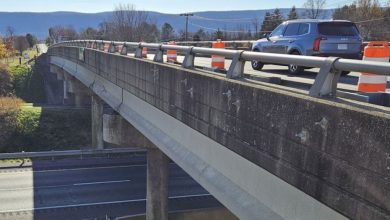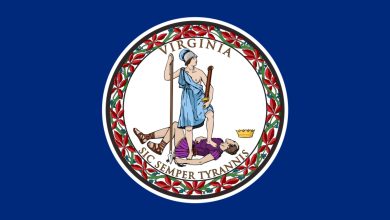New executive action will expand nursing home inspector workforce and improve complaint resolution processes
Richmond, Virginia – In a major push to ensure Virginia’s nursing homes meet the highest standards of safety, quality, and transparency, Governor Glenn Youngkin yesterday signed Executive Order 52, launching a sweeping set of reforms aimed at transforming long-term care oversight across the state. The order directs targeted actions to increase staffing, modernize operations, improve transparency, and tighten regulatory enforcement.
Targeted Actions to Address Oversight Gaps
The Executive Order charges the Virginia Department of Health’s Office of Licensure and Certification (OLC) with implementing a series of immediate improvements. Among them is a comprehensive recruitment campaign to fill all vacant Long-Term Care Medical Facility Inspector positions. The initiative includes the establishment of a dedicated Northern Virginia OLC office, equipped with its own inspection team, and will leverage both traditional and non-traditional hiring strategies to attract qualified professionals.
A new Advisory Board on Nursing Home Oversight and Accountability will also be created, tasked with recommending policies and practices to raise standards of resident care. This body will focus on improving quality of life, strengthening safety protocols, and ensuring facilities meet or exceed regulatory requirements.
In addition, the order calls for modernization of OLC operations by automating licensing and inspection procedures, expanding the use of digital tools, and exploring Artificial Intelligence (AI) solutions to reduce administrative delays. Transparency will also be a major focus, with the development of a public portal providing inspection and survey results, disciplinary records, and key facility performance data.
Governor’s Visit and Commitment to Reform
On Friday, August 8, Governor Youngkin visited the OLC to review progress on improvements already underway that align with the order. These updates included faster complaint resolution processes, improved scheduling for inspections, expanded digital licensing tools, and greater public access to facility compliance records.
“Virginia’s seniors and families deserve peace of mind knowing their loved ones are receiving the highest quality care,” said Governor Glenn Youngkin. “This Executive Order reinforces our commitment to safety, transparency, and excellence in long-term care. I commend the OLC team for embracing innovation and working tirelessly to support caregivers and protect residents.”
Secretary of Health and Human Resources Janet V. Kelly emphasized that the move builds upon progress already made. “This Executive Order puts a strong foundation under the progress we’ve already made and gives us the tools to go further, faster,” Kelly said. “We are committed to building a long-term care system that is transparent, accountable, and worthy of the trust Virginia families place in it.”
Strong Support from Health Officials and Lawmakers
State Health Commissioner Karen Shelton, MD, underscored the readiness of the OLC to take on the challenge, noting, “These initiatives will allow us to attract and retain top talent, modernize the way we work, and strengthen partnerships to better protect residents. It’s a clear signal that quality and safety come first in Virginia’s nursing homes.”
Delegate Mike Cherry praised the governor’s action, stating, “Right now, too many of our most vulnerable Virginians are getting substandard care and the nursing homes are getting away with it. I thank Governor Youngkin for this strong action today to bring needed oversight, accountability, and enforcement. Together, we will keep working to improve oversight and protect Virginians.”
Oversight for Hundreds of Facilities
The OLC is responsible for licensing and monitoring nearly 300 nursing homes across Virginia, with a combined capacity of close to 33,000 beds. Facilities are subject to regular inspections to ensure compliance with both state and, when applicable, federal regulations tied to Medicare and Medicaid. The inspection teams include physicians, registered nurses, dietitians, and social workers, who also investigate complaints from residents and families.
This latest executive action builds on bipartisan legislation passed earlier this year, which fully funded nursing home inspector positions and expanded enforcement authority. Together, these measures reflect a sustained commitment from Virginia’s leadership to ensuring a safe, transparent, and high-quality system of care for some of the state’s most vulnerable residents.




